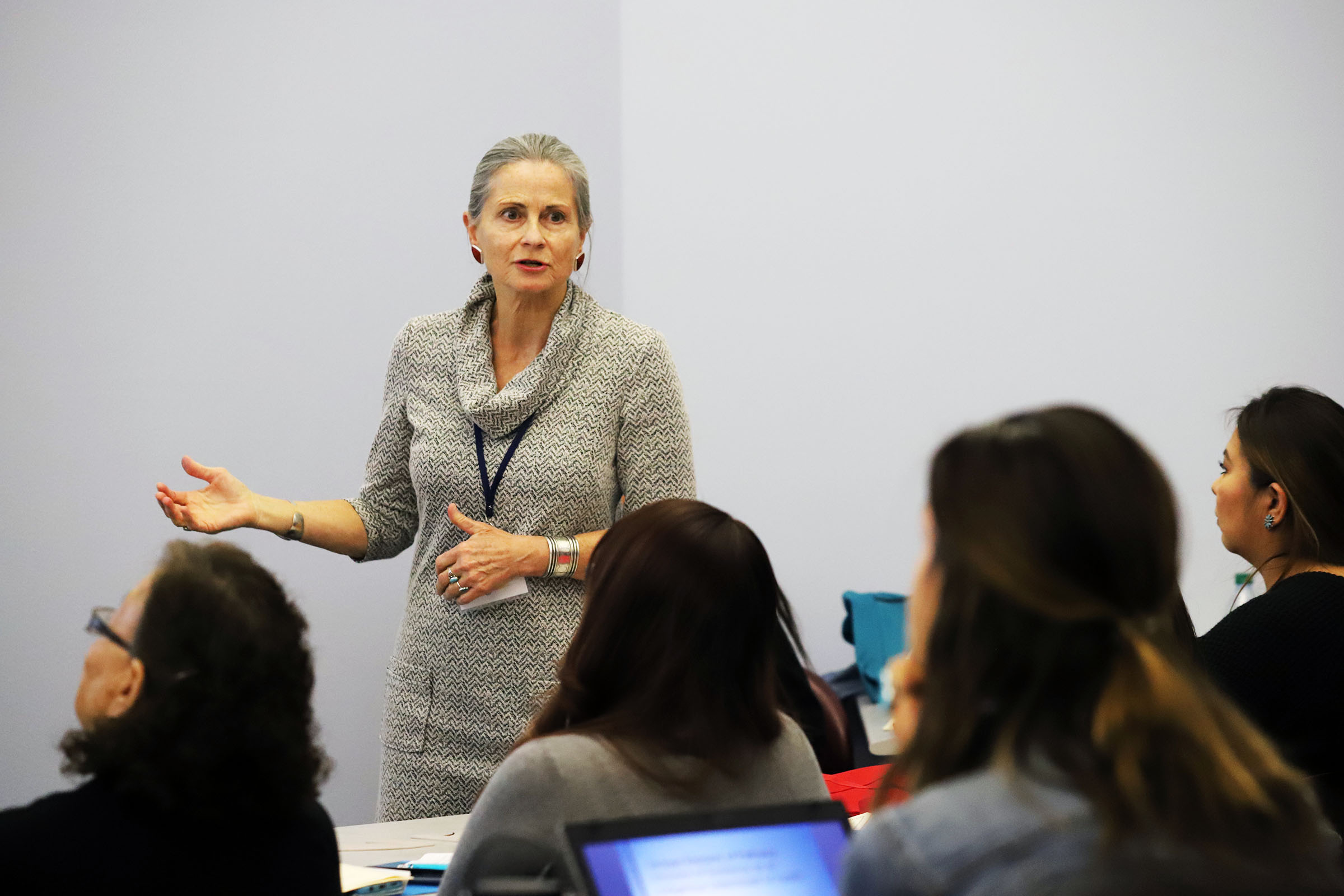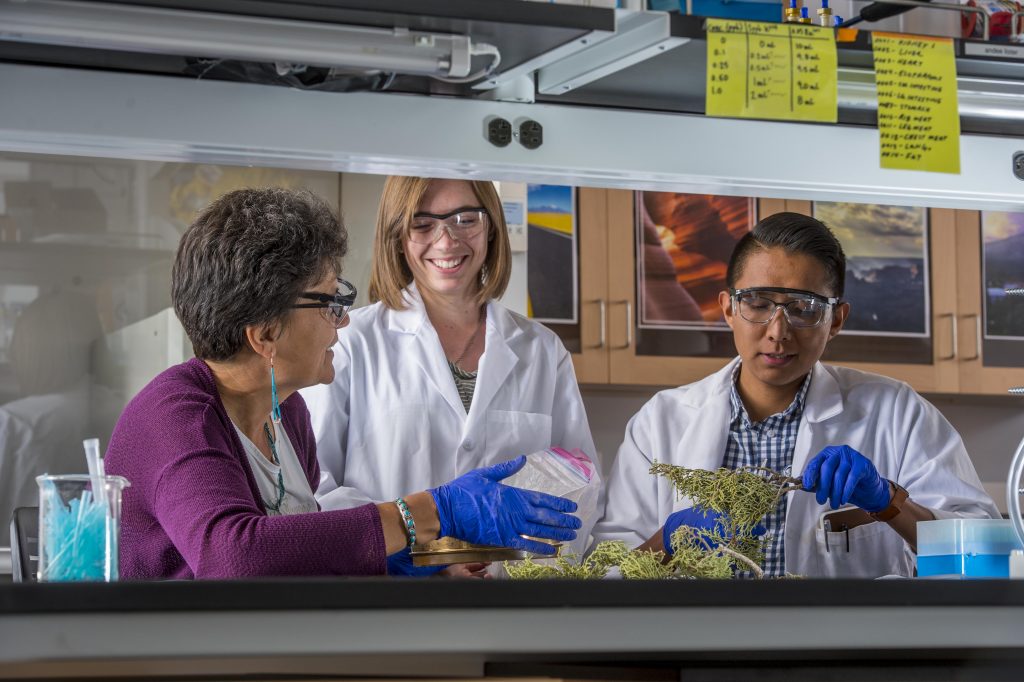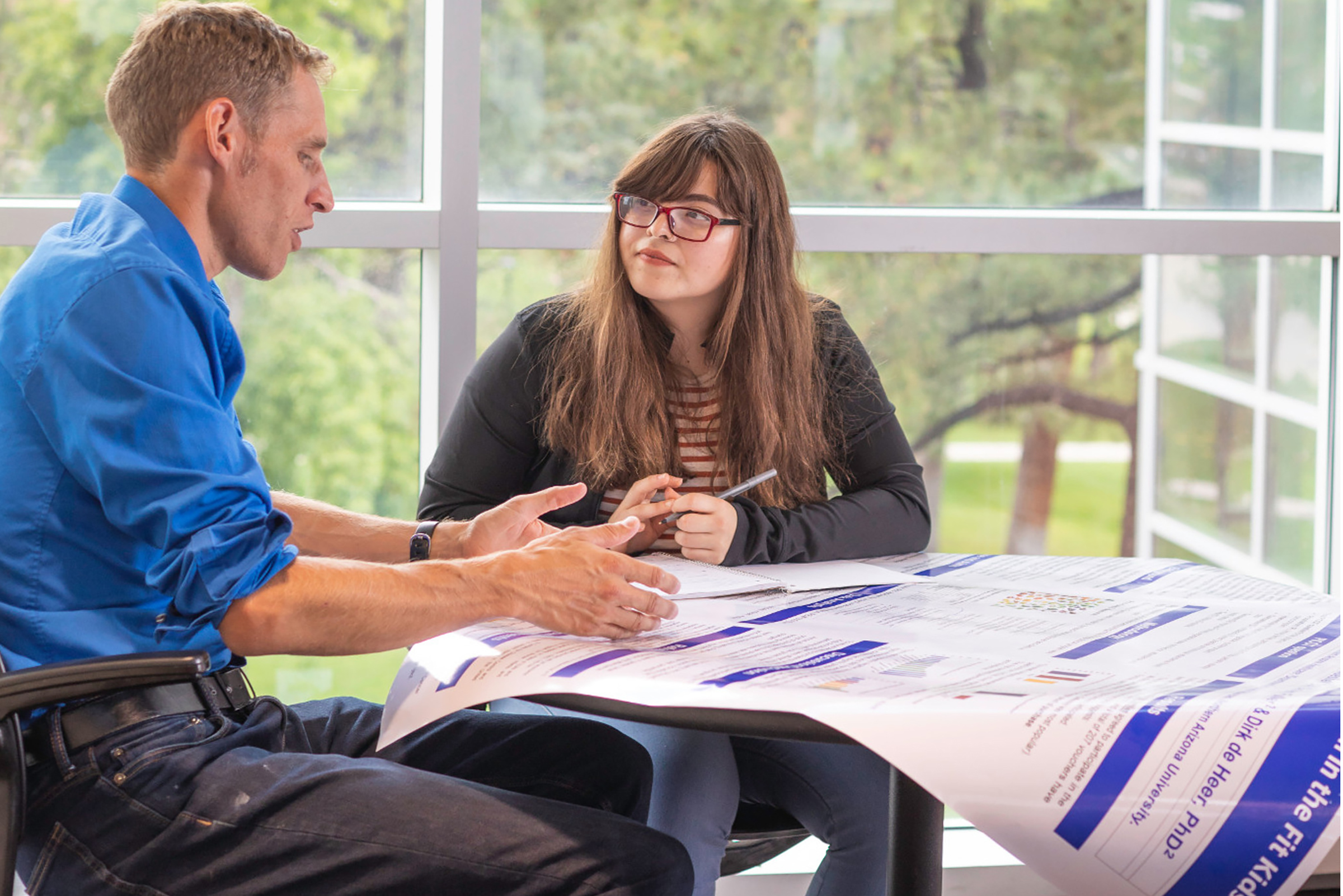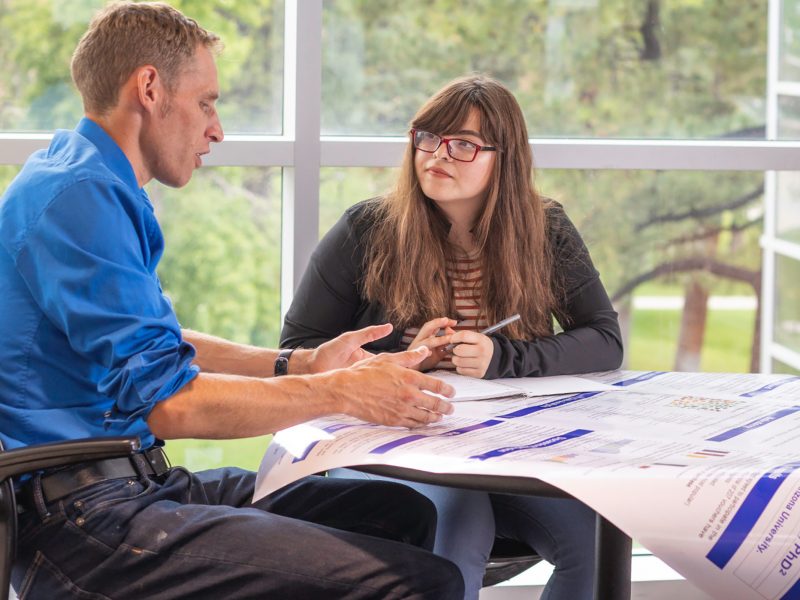$4 million award funds new Center for Native American Cancer Health Equity
Improving cancer screening rates among Native Americans, increasing education about tribe-specific cancer trends, and addressing disproportionately high exposure to carcinogenic environmental contaminants are just a few aims of the newly funded Center for Native American Cancer Health Equity (C-NACHE).

Nicolette Teufel-Shone, associate director of the Center for Health Equity Research (CHER) and a professor in the Department of Health Science, and several other NAU faculty and staff were recently awarded $4 million by the American Cancer Society to create C-NACHE, to be housed in CHER.
Structural racism—discrimination and marginalization experienced by Native Americans as an ethnic group–is an upstream factor that underlies cancer risk. The project team believes that racism also limits evidence-based strategies to educate communities, organizations and Native Nations about ways to reduce cancer risk.
C-NACHE researchers will collaborate with tribal communities to develop a community advisory board to address cancer prevalence trends. They also plan to create an Arizona Intertribal Cancer Prevention Forum and build and maintain an Arizona Intertribal cancer website and newsletter to inform Native Nations leaders and other collaborators of determinants influencing cancer risks.
C-NACHE will feature two main projects:
- “Environmental Exposures from Legacy Mining as a Social Determinant of Health Linked to Kidney Cancer,” led by Regents’ Professor Jani Ingram, Department of Chemistry and Biochemistry and principal investigator of the Partnership for Native American Cancer Prevention
- “The Navajo Cancer Workgroup: Enhancing impact of epidemiological data for cancer prevention and control among the Navajo people,” led by Hendrick (Dirk) de Heer, professor in the Department of Health Sciences
“The goal—to develop intertribal synergy through the advisory board, forum and website in conjunction with the community-based research projects—will contribute to understanding the contextual factors that drive cancer health inequities for Native Americans in Arizona,” Teufel-Shone said.

Examining environmental exposures
Ingram is an expert on environmental exposure and uranium mining and has authored many publications on the effects of environmental contaminants, especially on humans.
She is the principal investigator of the Partnership for Native American Cancer Prevention (NACP) and director of the Bridging Native American Students to Bachelor’s Degree (BRIDGES) program, and she is a member of the Navajo Nation from the Naneesht’ezhi clan.
“This study will provide the Navajo Nation with information on rates of kidney disease and kidney cancer and the potential correlation to environmental exposures from contaminants of legacy mining,” Ingram said. “The project will translate the findings into practical tools for health care providers to assist in early detection and diagnosis of kidney cancer and disseminate the findings to communities to minimize exposures. We will provide a roadmap for future work linking environmental exposures and cancer.”
Other researchers on the project with Ingram include Ricky Camplain, assistant professor with CHER and the Department of Health Sciences; a post-doctoral researcher with expertise in environmental health; and a chemistry graduate student to focus on environmental chemistry work.
The team will be advised by Ken Batai, cancer researcher, Melissa Furlong, environmental epidemiologist at the University of Arizona, and Bethany Davis, translational genomics researcher from TGEN.
“Our team will take a multi-disciplinary approach to investigate the complex issue of the correlation between environmental exposure from legacy mining and cancer,” Ingram said.

Enhancing cancer prevention on the Navajo Nation through epidemiological data
Led by Hendrick (Dirk) de Heer, professor in the Department of Health Sciences, the Navajo Cancer Workgroup study team hopes to impact cancer prevention through the understanding that Navajo cancer health disparities must be assessed by studying environmental contamination, poverty, poor access to care and clean water, disrupted food systems and high rates of diabetes throughout the Navajo Nation.
The study is a collaboration between researchers from NAU, members of the Navajo Cancer Workgroup and regional cancer centers.
The Navajo Cancer Workgroup was founded more than 20 years ago to enhance cancer observations and promote cancer prevention efforts. It is led by the Navajo Epidemiology Center and includes members of the University of Arizona and University of New Mexico Comprehensive Cancer Centers, academic institutions across the region, representatives of the Arizona, New Mexico and Utah State cancer registries, Indian Health Service, the Albuquerque Area Southwest Tribal Epidemiology Center and others.
“These people represent experts in cancer epidemiology data and are ideally positioned to meet the overarching project goal of enhancing the impact of such data for cancer control and prevention among the Navajo people,” de Heer said.
The Navajo Cancer Workgroup has produced two major reports—Cancer Among the Navajo, 1995-2004, and 2005-2013—based on high-quality, population-based tumor and cancer registry data on incidence, stage at diagnosis, and mortality from the six counties that include the Navajo Nation. The results indicate significantly higher rates of kidney, liver, stomach and gallbladder cancer and lower rates of lung cancer, compared to the U.S. population. Navajo are also diagnosed at later stages than the U.S. population for breast, colorectal and cervical cancer.
The researchers will test change over time and regional variability in cancer incidence, mortality, staging and screening and will develop culturally relevant tools to directly engage Navajo communities, clinicians, and policymakers with Navajo-specific cancer data to drive immediate and long-term cancer prevention and control planning.
“We believe the project is important as it focuses on ways that we can utilize existing registry and epidemiology data relevant to the Navajo people to make a bigger impact on cancer control and prevention,” de Heer said.
The researchers hope to:
- Disseminate scientific data across the Navajo Nation.
- Develop a user-friendly data dashboard to share and regularly update the data.
- Engage with collaborators to create a Navajo cancer control and prevention plan based on the data.
“I think C-NACHE as a center provides a strong foundation of resources and expertise needed to effectively engage stakeholders across our region to move the needle on cancer prevention and control in Tribal nations,” de Heer said.
C-NACHE is funded by the American Cancer Society, award number CHERC-MSI-22-183-01-CHERC-MSI.
